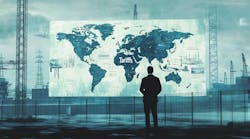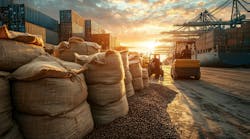So far in 2018, the chief concerns of global trade and manufacturing have been centered around main geopolitical issues, such as the unfolding China-U.S. trade war and the UK’s impending departure from the E.U. With such major developments dominating the agenda, ethical, compliance and environmental standards in supply chains can take a back seat—until an incident happens or an ethical lapse hits the news.
It’s evident from analysis of the thousands of global, on-site factory audits we’ve conducted so far this year that manufacturers’ interest in ethics and sustainability is waning. Even though overall ethical scores recorded by factory auditors in the second quarter are still higher compared to the average 2017 values, manufacturers have failed to maintain the previous quarter’s improvement pace. More than one-third of factories received an "amber" grade on the commonly used “traffic light” ranking system, indicating that improvements are required in the medium-term to prevent further deterioration. (“Green” grade typically indicates high levels of ethical compliance, while “red” points to the presence of critical non-compliances, including child and/or forced labor).
“Ethical compliance” is a fairly broad term. So what specific issues are plaguing global supply chains in 2018? Ensuring safe working conditions is one of the major struggles, with its latest structural audit data pointing to slower progress than optimal. The good news is, in the second quarter of 2018, fewer factories were found to have immediate critical risks threatening worker life and safety.
The bad news? The share of fully compliant (“green-light”) factories has hit a two-year low at less than 20%, meaning that an overwhelming majority of factories require improvement in the medium term—and failure to remediate will exacerbate their structural risks over the following quarters, especially in parts of Asia affected by the monsoon season.
What about environmental concerns? With the global community waking up to the realities of climate change and devastating levels of pollution, both businesses and governments have been rolling out initiatives to clean up their respective acts. Last year, China made headlines with the unprecedented government-led campaign that saw thousands of polluting factories fined, suspended and permanently shut down. Even by modest estimates, some 40% of China’s factories were affected, and the aggregated fines totaled USD 54 million. Now, in 2018, a new round of government inspections is being rolled out, and if our data is any indication, they can’t come soon enough.
Despite last year’s efforts by the government and businesses, Chinese factories of all sizes still lag behind the rest of Asia in terms of environmental compliance. In the first half of 2018, Chinese manufacturers received some of the lowest scores on waste management and pollution prevention, scoring on average 21% lower than their counterparts in the rest of Asia. Notably small factories are doing worse than the rest: Factories employing less than 100 workers accounted for more than two-thirds of major non-compliances the first half of 2018--while comprising less than half of all facilities audited for environmental compliance.
This year is shaping up to be one of unprecedented challenges for global supply chains, challenges that could force companies to find new sourcing regions and new suppliers—and face new ethical and sustainability challenges.
Sebastien Breteau is the founder and CEO of AsiaInspection, a global quality control and compliance service operating in more than 120 countries.



